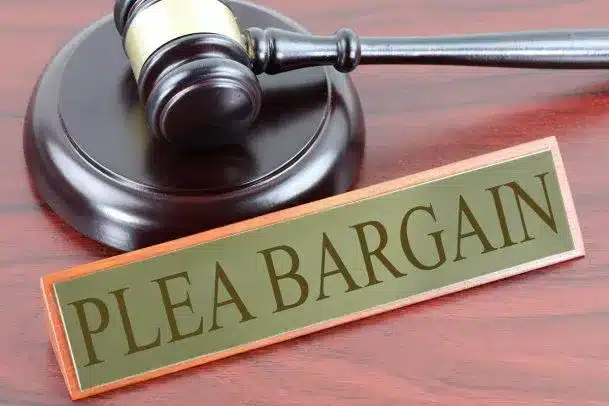The Future of Plea Bargains 2025: What Defendants Must Know in Court
Table of Contents
Introduction
The future of plea bargains in the United States is undergoing a major transformation. For decades, plea deals have been the backbone of the criminal justice system, with over 90% of criminal cases resolved through negotiation rather than trial. But 2025 brings sweeping reforms, federal oversight, and state-driven changes that could dramatically shift how plea bargains work.
If you’re facing charges in 2025, knowing what to expect from the future of plea bargains could mean the difference between securing a fair deal and suffering harsh consequences.
Why the Future of Plea Bargains Is Changing
Several powerful forces are reshaping plea bargaining across the country:
- Federal Crackdown on Coercive Deals – The Department of Justice is requiring greater transparency in plea negotiations to ensure defendants aren’t pressured into unfair agreements.
- State-Level Sentencing Reform – States like New York, Texas, and California are passing new sentencing guidelines that reduce prosecutors’ leverage.
- Fairness and Equity Concerns – Advocacy groups argue that traditional plea bargains disproportionately impact low-income and minority defendants.
- AI and Digital Evidence – The rise of artificial intelligence in evidence gathering is strengthening prosecutors’ bargaining position but also creating new grounds for defense challenges.
These changes signal a new chapter in the future of plea bargains — one that could bring more balance to the justice system.

What Defendants Should Expect in 2025 Courts
- More Transparency in Deals
Courts now require plea negotiations to be documented in detail. Judges are scrutinizing deals more closely to ensure they are voluntary and fair. - Reduced Trial Penalties
In the past, defendants risked much harsher sentences if they rejected a plea and lost at trial. In 2025, reforms in some states aim to reduce this “trial penalty,” giving defendants more confidence to challenge charges. - AI-Driven Bargaining Power
Prosecutors are using AI tools to analyze texts, emails, and digital footprints. While this gives them stronger leverage in negotiations, it also provides defense attorneys with opportunities to challenge the reliability of AI-generated evidence. - More Alternatives to Prison
The future of plea bargains isn’t just about reducing time behind bars. Many states are expanding diversion programs, probation, and rehabilitation as part of negotiated deals, especially for juveniles and non-violent offenders.
Live Example in 2025
In Texas, a college student was arrested for a cybercrime-related offense. Prosecutors initially offered a 12-year plea deal. However, under new transparency laws and reduced trial penalties, his defense attorney negotiated a drastically reduced plea — probation with mandatory community service. This case illustrates how the future of plea bargains can work in favor of defendants who have skilled legal representation.
Defense Strategies in the Future of Plea Bargains
To protect your rights in 2025, defendants should consider the following strategies:
- Demand Full Evidence Disclosure – Don’t agree to a deal without knowing the strength of the prosecution’s case.
- Challenge AI Evidence – Many AI tools lack accuracy and can be successfully contested in court.
- Use Sentencing Reform Laws – Leverage new state laws that limit harsh penalties tied to plea deals.
- Consider Trial as a Real Option – With reduced trial penalties, rejecting a plea deal may not be as risky as before.
- Negotiate for Diversion Programs – In the future of plea bargains, alternatives like rehab or treatment are becoming more common.
YouTube Video Suggestion
🎥 Recommended Video to Embed:
“Plea Bargains in 2025: What Defendants Need to Know” — explains how reforms and new laws are shaping criminal defense outcomes.

Conclusion
The future of plea bargains in 2025 is no longer business as usual. With greater transparency, reduced coercion, sentencing reforms, and the influence of AI evidence, defendants now face a system that is evolving rapidly.
But while these changes may improve fairness, the stakes remain high. If you or someone you know is facing criminal charges, navigating the future of plea bargains requires an experienced defense lawyer who understands both the law and the latest reforms.
👉 Don’t leave your future to chance — contact a skilled criminal defense attorney today to protect your rights in this changing legal landscape.


Leave a Reply to AI Surveillance Evidence Defense: How to Protect Your Rights in 2025 – Criminal Defense Lawyers Cancel reply